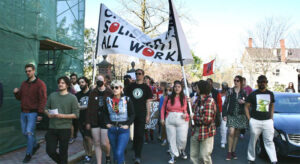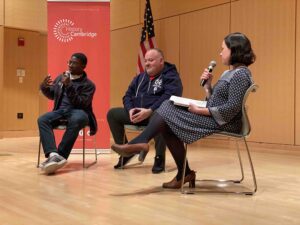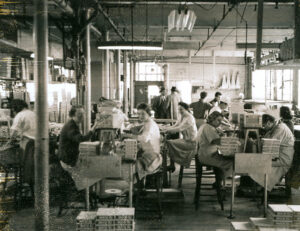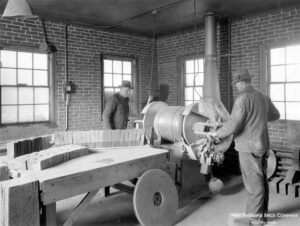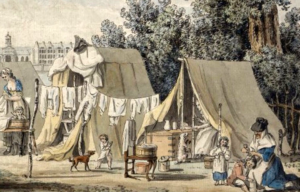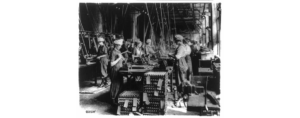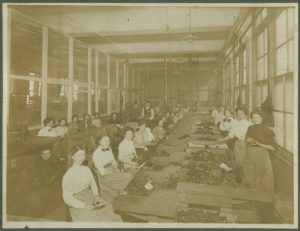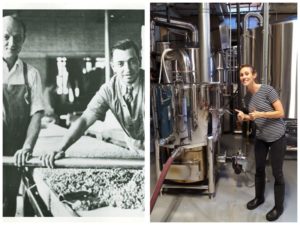Posts Tagged ‘labor history’
History Cambridge’s Fall Conversation asks, ‘How Does Cambridge Unionize?’
How do Cantabrigians see themselves as workers? How is their identity linked to their work? Do they see themselves as part of a local workers’ community, or do they identify with their profession across geographical boundaries? History Cambridge will explore these and related issues in a Nov. 14 event.
Read MoreNov. 14 Fall Conversation 2022 Recap: How Does Cambridge Unionize?
The final program in our year of asking “Who Are Cambridge Workers?” will focus on labor organizing in Cambridge, both past and present. How do Cantabrigians see themselves as workers? How is their identity linked to their work? Do they see themselves as part of a local workers’ community, or do they identify with their profession across geographical boundaries? How has the pandemic and the shift (for some) to remote work affected this sense of community and identity? We will be joined by representatives from the MIT Graduate Students’ Union, the Cambridge Teachers’ Union, and the 1369 Coffeehouse Workers’ Union to hear about their current organizing efforts and the future of unionization in Cambridge and beyond.
Read MoreChanging Tides in Cambridge Industry
By the early 20th century, Cambridge was an industrial center with a broad array of factories. People from all over the country and the world came to work here. Why?
Read More‘Changing Tides in Cambridge Industry’ talk will examine wave of labor and immigration
Since its beginnings as a colonial settlement, Cambridge has seen numerous shifts in its population, as waves of migrants arrived from various parts of the United States and around the world. As these new Cantabrigians arrived in the city needing work, many found jobs in the city’s industrial sector, most notably in the glass, brick, furniture, meatpacking and confectionary factories in Cambridge. Employment in many of these industries was dominated by different immigrant groups at different periods, with newer arrivals taking jobs in lower-paying, more physically demanding sectors. Eventually these ethnic groups would move up the socioeconomic ladder, finding employment in more lucrative and less strenuous industries while the next wave of newcomers replaced them. For many, similar work experience at home and the recommendation of friends, family or others of their same ethnicity led them to choose a particular industry. For others, their status as immigrants drastically limited the employment options open to them. Whether by choice or circumscription, the clustering of migrant groups in particular industries helped shape the labor landscape of Cambridge.
Read MoreUpcoming History Cafe will pose the question: Washington slept here, but who made his bed?
A talk on women, Black Cantabrigians and the work of revolution
Read MoreWho Is Essential Cambridge? Part 1: War and Industry
What was the role of Cambridge women in industrial production?
Read More“The Absolute Majority of the Population”: Women in Twentieth-Century Cambridge
This article was originally published as a chapter in Cambridge in the Twentieth Century, edited by Daphne Abeel, Cambridge Historical Society, 2007. Inspired by Cambridge Historical Society’s 2020 theme—Who are Cambridge Women?—the author, Eva Moseley, has reviewed the manuscript and made a few updates which are noted in the text that follows. “The Absolute Majority…
Read MoreEarly Glass Making In East Cambridge
by Doris Hayes-Cavanaugh, 1926 Much has been said recently about the business growth of Cambridge, and a number of publications have stressed the fact that Cambridge, and particularly the section known as East Cambridge, now stands very high in the scale of New England manufacturing centres. Imposing schedules of plants and factories have appeared, setting…
Read MorePast History Café – Candy, Soap, or Beer? The Working Life in The Port Neighborhood of Cambridge
Tuesday, 05/09/17, 5:30–8:00pm 5:30–6:30pm Walking Tour:Tour The Port with Marian Darlington-Hope; focusing on the manufacturing history, and workers’ lives in The Port, through time. Tour starts in front of Lamplighter Brewing Company at 5:30pm sharp. Please show up by 5:25. 6:45–8:00pm History Café:Cayla Marvil will tell Lamplighter’s story of making beer in Cambridge today. Learn…
Read More
